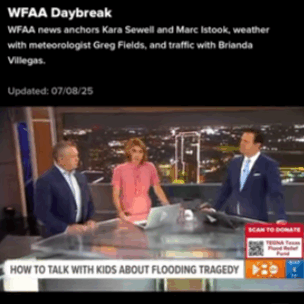
Talking to Kids After Tragedy: What Parents Need to Know
In the aftermath of a tragedy, many parents find themselves grappling with one big question: How do I talk to my child about this? Or even more uncertain—should I bring it up at all?
These moments are incredibly heavy, not just for children but for the adults who care for them. When something heartbreaking happens, it’s normal to feel overwhelmed, and it's just as normal to feel unsure of what to say.
Here are some insights on how to approach these tough conversations:
Start With Yourself
Before talking to your child, take a moment to check in with yourself. Tragedies like these often hit parents hard, especially when we imagine our own kids in similar situations. Make space for your own feelings before guiding your child through theirs.
Let Your Child Lead
Children process difficult news in very different ways. Some may ask lots of questions. Others may barely say a word. That’s okay.
Stick to simple, age-appropriate facts, and avoid overwhelming details. Most importantly, let their curiosity or silence set the pace.
Talk About Feelings
You don’t need to have all the answers—but do make space to name and validate emotions. Let your child know that it’s okay to feel sad, scared, angry, or confused. Share how you're feeling, too. This models emotional openness and helps them feel less alone.
Watch for Survivor’s Guilt
For kids who were closer to the tragedy—witnesses, survivors, or even just those in the same community—it’s common to feel a deep sense of confusion or guilt. Help your child move through those emotions by:
-
Validating what they’re feeling
-
Shifting focus toward empathy and concern for others impacted
-
Reinforcing that they are safe and not to blame
Know When to Seek Extra Help
Grief and trauma don’t follow a schedule. Sometimes the signs show up days or weeks later—changes in mood, sleep, behavior, or appetite. That’s when it may be time to reach out for help.
Counseling can be a powerful, proactive step in helping children process what they’ve experienced or witnessed. Parents and loved ones are an essential support system, but sometimes kids need additional outlets.
Churches, schools, and community groups also play a vital role in healing. When they come together to support families and children, they help create a foundation that eases grief now—and prevents long-term trauma later.
If you’re not sure where to start, check in with a counselor, your child’s school, or your faith community. You don’t have to navigate this alone—and neither does your child.
Need help? Call and schedule an appointment today 214-526-4525.
